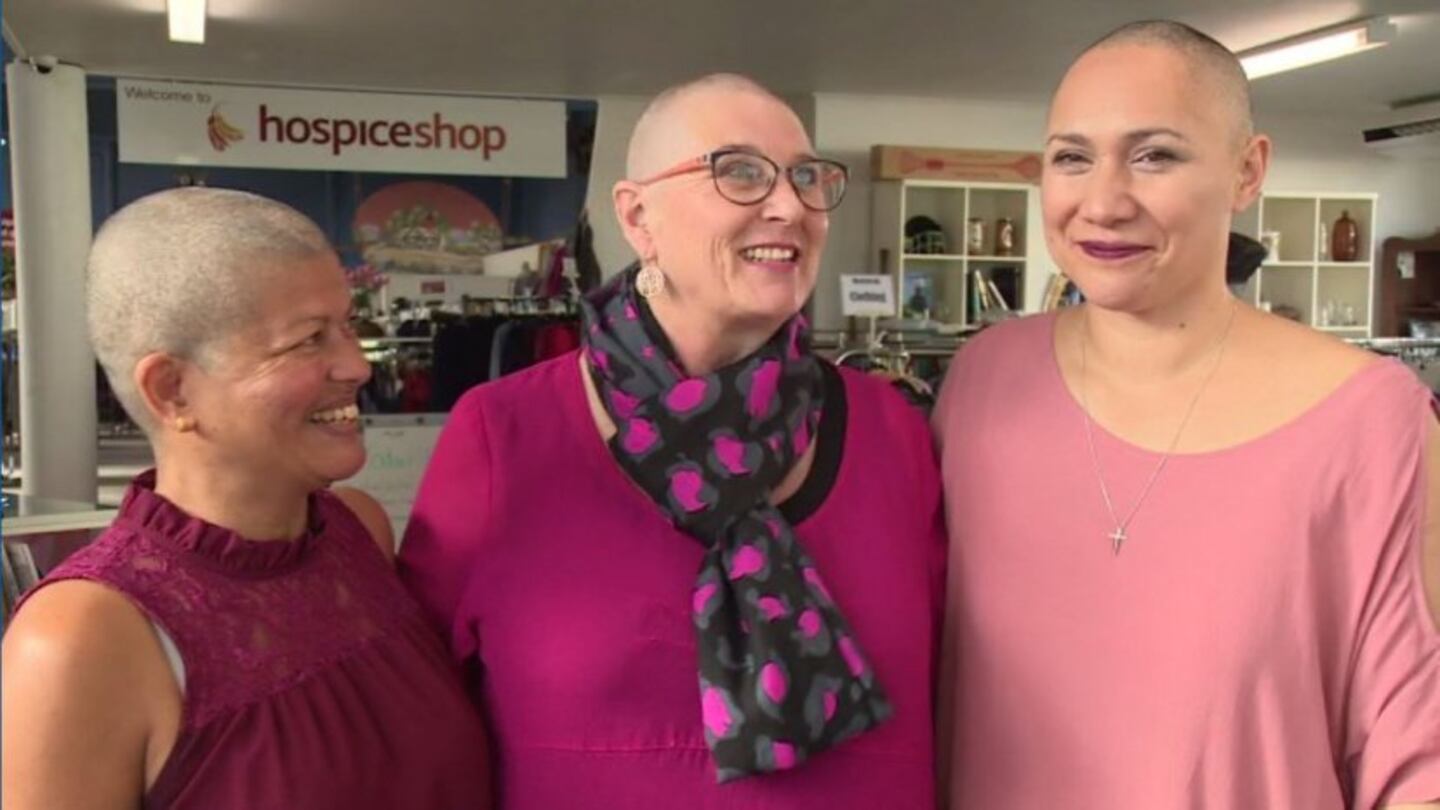Three hospice volunteers shaved their heads to raise funds for Hospice Waikato and specialist children's hospice Rainbow Place in 2019. Photo / File
The hospice sector is calling for the government to provide an increase in baseline funding for hospices as costs skyrocket because of inflation.
“Hospice care is a valued and cherished service that we expect to be there free of charge for our loved ones when they need it. Yet, of course, this essential and valued service is not really free," Te Kahu Pairuri/Hospice NZ acting CEO Wayne Naylor said in a statement Saturday evening.
“In 2021 hospices cared for nearly 20,000 patients and their whānau at a cost of approximately $175.6 million. The government covered $88 million of that cost. That means hospices needed to raise around $87.2 million from the community to bridge the gap.
“Essentially, we have to rely on fundraising from communities to ensure people have a good death,” Naylor says.
“Raising $87 million in our communities through op shops and charity events is a mammoth task and hospices do a brilliant job at it. But in today’s climate, with rapidly rising cost of living pressures off the back of Covid, the people and businesses that support hospices are struggling.
“The hospice retail stores have lost out on substantial revenue because of Covid lockdowns and restrictions, and it’s fair to say the financial pressure our hospices are facing is really precarious.”
The sector fears this funding gap is not sustainable and Naylor says this critical service remains under-recognised by the government and the Ministry of Health.
With the exception of a small increase in Budget 2020, he says government funding for Hospice has not kept pace with service delivery costs since an increase in funding in 2015. For the 27 hospices with DHB contracts, Naylor says costs have grown by over $41m, while government funding has increased by just $18.8m.
Following retail losses alone of over $8m during the August to November 2021 Covid lockdowns, he says a request for Covid relief funding at the end of 2021 was declined by the Ministry of Health.
“While the hospice sector was grateful for the $5 million additional funding per year for four years from 2020, this is merely a drop in the bucket towards the $87.2 million we need to raise in our communities to provide free palliative care," Naylor says.
Te Kahu Pairuri data indicates that Māori were 13 per cent and Pasifika 4 per cent of those who received hospice care in 2020.



